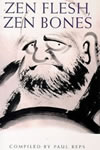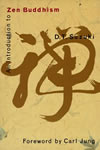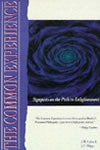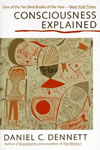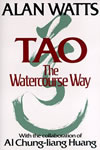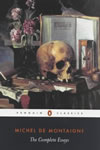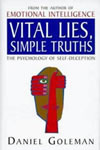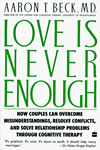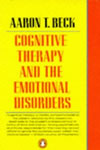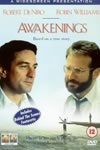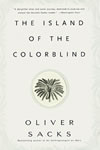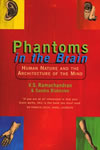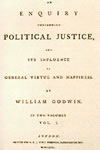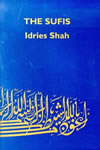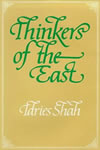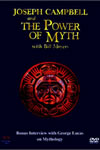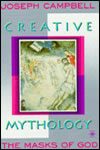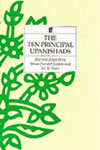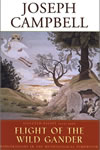My regulation Anglican — Episcopalian — upbringing ended when my mum let me stay at home instead of going with the family to Church. I was 11 years old. It wasn’t a religious decision: I just found Church boring. As soon as I entered my teens, I began to question. Asked if any but those of his own Methodist persuasion would enter the kingdom of heaven, my school’s Religious Education teacher quietly said ‘no’. I wasn’t trying to be difficult; I was genuinely curious. The next week, I asked if he believed that God could ever forgive the Devil — Christianity being a religion based upon forgiveness, so I was told. He again responded in the negative. At that moment, my Christian belief evaporated. I told my mother that I wouldn’t be confirmed into the faith, and I wasn’t. Let me note here that she was far more tolerant of this decision than most parents would be, given the strength of her own conviction.
I thought the teachings of Jesus mostly wonderful, but the Christian Churches seemed to represent something quite other than those teachings. At 14, I read a little Plato, and found the ideas of Socrates fascinating — especially the discourse on love in Symposium. I was also influenced by Herman Hesse, and especially his novel Siddhartha, which describes a journey to enlightenment. That may have been where I first met the concept of waking up from the illusion into which we are all born. At age 17, I read the Tao Teh Ching by Lao Tzu, and felt as if I’d come home. This book — in some of its many translations — has stayed with me ever since. In 1984, I was even presumptuous enough to write my own version, more as a way of studying the text than of trying to present a correct interpretation. I love the non-religious character of the 81 brief chapters, and Lao Tzu’s practical approach. The Tao Teh Ching describes an eminently sensible way of living. It is marvellously augmented by the other two Tao classics — Chuang Tzu and Sun Tzu. The ever quirky Chuang Tzu remains my role model, though my endeavours to be like him have almost entirely failed. At 18, I bought a copy of Paul Reps’ wonderful Zen Flesh, Zen Bones, and learned something about this Japanese mixture of Buddhism and Taoism. I liked the humour, and the continuing attempt to ‘burst the bag’ of intellectual reasoning. I arrived at the then newly opened Throssle Hole Soto Zen Priory, in the far north of England, determined to spend six months studying there. Waking at six o’clock, washing in cold water, and falling to my face thirty or forty times after repeating the mangled Japanese version of an Indian patriarch’s name twice a day finished me off far more quickly. I lasted a couple of days, daunted in my search for satori. Nonetheless, I learned the practice of zazen — sitting in meditation — and had a fascinating interview with the Abbot. Much, much later, I met and loved Professor Daisetz Suzuki’s ideas, especially his insistence that the failure of Zen is in monasticism. His description of nirvana stunned me. But I can’t remember a word of it now.Aged 19, I began a nine-year involvement with Scientology (and therefore Dianetics). I returned from a stressful six weeks in France to find that my long-term girlfriend had fallen in love with one of our friends. I felt that I was too emotionally vulnerable, and Scientology promised emotional equanimity. It didn’t deliver, but after leaving I made quite a name writing about that group. I avoid looking, but there are still thousands of references to my book and other cult-related writings on the Internet. In January 1996, after over 12 years of research, writing and counselling work, I wrote my last statement about Scientology. A few years later, they stopped sueing me.
Coming out of Scientology was a wonderful release. Not having to align my beliefs to a fixed — and often contradictory — creed was splendid. I read a fair amount of Krishnamurti, Alexandra David-Neel and Alan Watts, and saw the same experiences described in many different ways. My favourite book at the time was probably The Common Experience, by Cohn and Phipps, which explores this notion.I came to the belief that religion is a social phenomenon — a way of keeping people together, whereas mysticism is a personal search. So I became a mystic in my own tiny way. I also accepted that there is no contradiction in being a mystic and an atheist. Mysticism is a method of enquiry, an exploration of the self (and of course the non-self, or anatta, of Buddhist teaching). It can be practised empirically — using observation and experiment — but it is practised individually. I have never been a practitioner of any form of magic. I believe that any attempt to control others without their consent is unethical.
I have long agreed with the Buddhist view that the self is an illusion. We are each an everchanging crossroads of multiple experiences. I was amused in 1991 when an annoyed friend criticised me for reading a psychology text written ten years before, and told me that I should look at something more up-to-date. He sent me Dennett’s Consciousness Explained, which of course puts forward the ancient Buddhist view that there is no observer in the mind (‘the knower and the known are one’). Although Alan Watts was far from a perfect man, his analogy for the self still seems accurate: the self is like a whirlpool — it retains its shape although the energy that makes that shape is forever changing. The shape is itself empty, muor no-thing as the Zennists say. A fair description of my own mind, most days. Michel de Montaigne ranks high among European thinkers. He explained, for example, that his reluctance to punish his daughter came not from a feeling that it would be to her detriment, but from his knowledge of the shame he would feel if he did so. A true humanist. Shakespeare grabbed a couple of phrases from him. He was an adviser of kings who retired from public life to live contentedly, a man comparable to Chuang Tzu. His teaching is delicate and compassionate at a time — as is our own — of great destruction.I wanted to understand my experiences in Scientology, so I read about exploitative persuasion. It seemed that an understanding of hypnosis and thought reform was absolutely consonant with the search for truth. The first text of Scientology — Book One, as they call it — asserts that rather than giving people new hypnotic commands, we should bring to consciousness those hypnotic commands that they are already acting out. I am unconvinced of that organization’s methods, but I believe that this observation is absolutely right. Conscious, intelligent control should be returned to the individual.
An empirical psychology has been a long time coming. The bizarre notions of the American behaviourists — Watson and Skinner — formed a barrier to research for decades. And while Freud and friends developed some powerful insights, their work soon became a cultish rulebook, forbidding enquiry. And there is always a tendency for the enquirer in psychology to explore his or her own problems and believe them to be the all. Now we have something like a real cognitive science. I have been influenced by professor Daniel Goleman’s writings, especially his Vital Lies, Simple Truths, which is a psychology of self-deception: A vital subject for the would be mystic. I have also found Aaron Beck’s writings on Cognitive Therapy very useful in explaining the constant miscommunication that happens between people and with our selves. Love is Never Enoughis a fine book about communication, centreing on marriage, but relevant to all relationships. I am also deeply impressed by Cognitive Therapy and the Emotional Disorders, which gives a straightforward analysis of mood, and a rational approach to self-understanding. In the last decade, psychology has moved ahead in leaps and bounds. This former province of opinionated cranks is submitting to the empirical method. Oliver Sacks was a forerunner of the current trend. Robin Williams had a good crack at playing him in Awakenings. Sachs has a refreshing sweetness and humility, so unlike the tyrannical egos of so many geniuses. His Island of the Colorblind gives insight into the normal brain by investigating the deterioration caused by various diseases. V.S. Ramachandran, an eminent neuroscientist, collaborated with Sandra Blakeslee to produce the highly readable Phantoms in the Brain. Ramachandran pioneered a simple technique — using a box and a mirror — to relieve sufferers from the agonising pains of phantom limb syndrome. As previous treatments included hacking away more and more of the limb, this was a great boon. The book’s account of the humourist James Thurber’s delight at his progression into a world of hallucination with the onset of Charles Bonnet syndrome is humbling. Of his colourful blindness, Thurber wrote ‘Man has devised no spectacle of light in any way similar to this sublime arrangement of colors or holy visitation.’ My political attitudes remain naïve. I do believe that the salvation of humanity will come through increased responsibility on the part of the individual. I share the general distrust of politicians and the commercial oligarchy that gives them direction. I have no faith in socialism, but I do believe that power should be held at the lowest level possible, rather than being grabbed for those at the top. This gives me a tendency towards anarcho-syndicalism — an expression I learned from Monty Python’s Holy Grail. I can posit no solution, but the errors of every system attempted thus far seem obvious. The writings of peaceful anarchists have inspired me, especially the work of the father of the mother of Frankenstein’s monster — William Godwin (his daughter married Shelley and wrote Frankenstein). His Enquiry Concerning Political Justice is profoundly insightful, and far too long for me ever to finish. In 2003, I read The Sufis by Idries Shah, a welcome introduction to a movement that has survived at the edge of Islam from the time of the prophet. Shah was a multi-faceted and fascinating man, and the sayings of the Sufi teachers are distinctly enlivening. I have read half a dozen of his books since, Thinkers of the East is a straightforward introduction to a tradition of wisdom that goes back before the time of Mohammed, although it has generally been allied with Islam (perhaps because its adherents were burnt at the stake in Christendom).I have spent many years speaking out against fake fakirs and gruesome gurus. As Shah says, true teachers ask for nothing in return for wisdom. Shah himself still courted the danger of being taken as a guru, and I reject his notion that a guru is a necessity for illumination. But, then I can make no claim to be illuminated, so how would I know?
The teacher who exemplifies the end of the guru phase is Joseph Campbell. He taught literature, but included a module on mythology in his course, over sixty years ago. The module was so popular that within a few semesters it became his sole subject. Campbell came to believe that mythology should be the freshman or first-year study of all undergraduates, and having read several of his books I strongly support his view.
Campbell’s survey of religious thought is exhaustive. He probed prehistory and gave fine explanations of the 30,000 year old origins of beliefs still prevalent today. The priestly culture — the authority of the rule-book — still governs in our own totalitarian times. Campbell shows its origins in ancient Sumer over five thousand years ago. His interviews on Power of the Myth are a fine introduction to his work, but buy the US edition not the hacked down BBC version. His four volume work The Masks of God (Primitive Mythology, Oriental Mythology, Occidental Mythology and Creative Mythology) took twelve years to write, and offers a fine course for the modern mystic. As I do, Campbell rejects the notion of God as a person. He speaks of the Hindu concept of the Absolute with Qualities and the Absolute without Qualities. That which many call the Tao. With Campbell’s urging, I have at last picked up the copy of The Upanishads that has languished on my shelf these last twenty years. In this work, which predates Jesus by some six hundred years, the universe is seen as the emanation of a single unity (translated as ‘the Self’). The thought fits in well with Emerson and the Transcendentalists.Campbell rejects the quietist withdrawal from the world common to Oriental mystics. For that matter, so does Shah, and Mahayana Buddhism insists on the return to the world (see the Ten Bulls in Zen Flesh, Zen Bones). But Campbell explains with great eloquence the impact of the Troubadour movement and the Grail legends, which transformed Western culture by showing the power of amor as distinct from the eros of lust, or the friendly agape. Amor is the love of another person — marriage for the sake of love, rather than as a business deal. Oriental belief has nothing of amor, and through amor we can learn what it is to love. I have the great good fortune to have amor as a part of my life, and I can confirm its healing, empowering nature.
Campbell goes on to say that the contemporary shamans, the visionaries who give life to the essential teachings — a necessity in each generation — are artists. He cites James Joyce and Thomas Mann as exemplars. The Flight of the Wild Gander and the last volume of the Masks of God, Creative Mythology, have influenced me as much as anything I have read. As he says in that work, ‘Since in the world of time every man lives but one life, it is in himself that he must search for the secret of the Garden.’ (p.624)We each continue the journey. Self-obsessed; eager to correct others; absolutely immodest in our pretence at humility. But the way is beautiful, and every step worthwhile.
May 2004
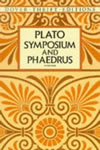
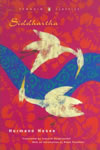
.jpg)
.jpg)
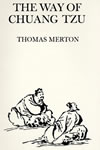
.jpg)
